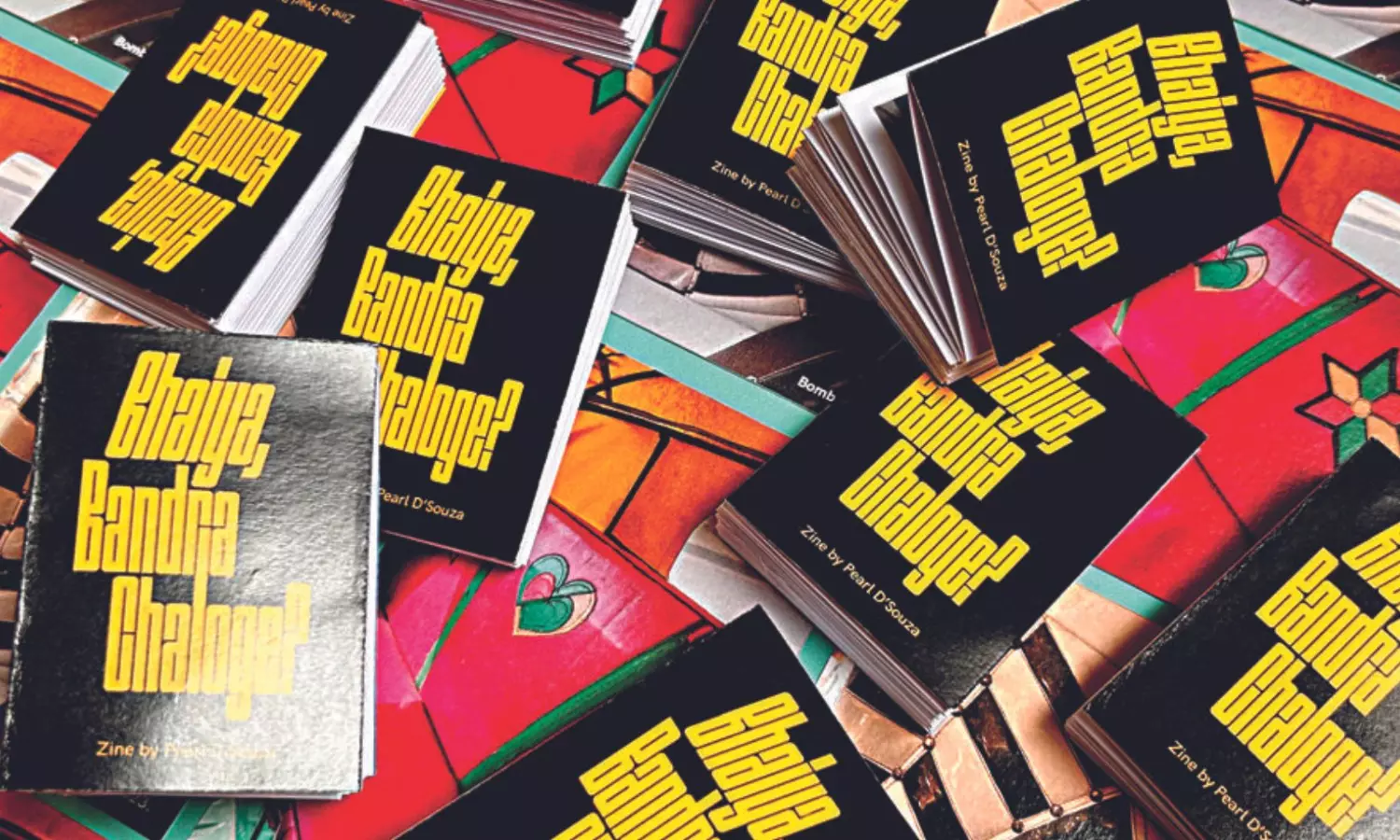Zine Artists Zinedabaad
Brimming with the creativity of self-expression, pocket-sized zines are becoming popular amongst various communities;

A non-comforming tool of self-expression, zine is gaining the eyes, hearts, and creative minds of people. Zines, the self-published mini work often in the form of a photocopied, folded or stapled booklet, brimming with creativity have found a vibrant niche in India's artistic landscape. Zines are a powerful tool for social commentary and activism. Issues like body positivity, caste, gender, sexuality, environmental concerns, LGBTQ+ rights, and mental health awareness find a space for exploration and discussion alongside explorations of music, art, and personal narratives. Zines in various Indian languages, beyond just English, ensure wider accessibility of voices and stories.
Pearl D’Souza, a Mumbai-based illustrator and visual artist, says, “When printing was expensive and inaccessible and the publishing space was closed off, people began to make zines to spread ideas and messages to their communities in a way that allowed them to be uncensored and free.” Making zines today has become a lot easier but will always remain relevant as it allows artists, writers, creators to still access that freedom of speech and thought.
Self-Expression
Whether printed or handcrafted, zine liberates people to follow their creative thoughts intuitively on sheets of paper. From literary zines, prezine, fanzines, political zines to making it comical, there are no rules and boundaries like any other artistic expression. Pearl loves per-zine or personal zines. She says, “Perzines talk about the artist's life experience or just document the mundane. It gives such an intimate look into the way the artist views the world. I love making zines about mental health, gender, or the natural world. Oftentimes those two topics overlap as well.” Pearl’s style has a mix of strong curvy lines and gritty textures.
Building Communities
Zinedabaad is a zine collective founded by Devashree Somani and Riya Behl. The duo makes zines, facilitates interactive workshops and curates pop-up zine libraries. The word ‘Zinda-baad’ in Hindustani means ‘Long Live’ and Zinedabaad is committed to keeping the spirit of social impact alive through their innovative, arts-based, community-building efforts. Riya (26) says, “Barter is common in the zine community. Zinesters often trade or swap zines with each other, or price them at accessible rates. Marginalised communities have historically championed zines or self-publishing and continue to do so.” Zines have played a crucial role across social movements as a tool for dissent. The duo believe in the spirit of zine as a non-commercial, non-professional, small-circulation booklet, usually distributed by zinesters themselves and made to exist outside of mass consumer culture.
They usually showcase zines during their workshops to start conversations on various subjects. The Collective did its first workshop in March 2020, during the anti-CAA and NRC movement. Riya and Devashree are committed to continue creating safe workshop spaces online and offline for communities to gather in solidarity and express themselves freely through zines. With the ongoing atrocity in Palestine, their upcoming ‘Watermelon Workshops’ fundraiser (June 29th & 30th) features online workshops led by eminent artists and writers to raise funds for mutual aid initiatives in Palestine and support ongoing relief work.
Facing the Challenges
Despite its vibrancy, zine culture in India faces certain challenges. Zines are often seen as a fringe activity, not a legitimate art form. Distribution networks are not well-developed compared to Western countries, making it difficult for zines to reach a wider audience. Ano Patel (34), founder and CEO of Bazinega, House of Zines, discovered zines through a trending hashtag on Instagram during the pandemic. “That sparked my journey from creating and selling my zines to realising that there's a market for zines,” Ano says. Bazinega aims to raise awareness and make zines an everyday read. It is like bite-sized reads, perfect for a chai or coffee break. She adds, “The eye-catching visuals, creativity, relatable content, and humour are key to grabbing readers' attention. Moreover, the limited print runs of zines add a unique collectability factor and generate more curiosity.”
Despite these challenges, the future of zine culture in India looks promising. Online platforms are strategically building communities and showcasing creations. As creativity continues to flow onto the pages, zines in India promise to be a powerful tool for storytelling, community building, and challenging the status quo, one page at a time.
Zinesters often trade or swap zines with each other, or price them at accessible rates, to avoid gatekeeping knowledge and encourage open-access sharing instead.” — Riya Behl, co-founder, Zinedabaad Collective

